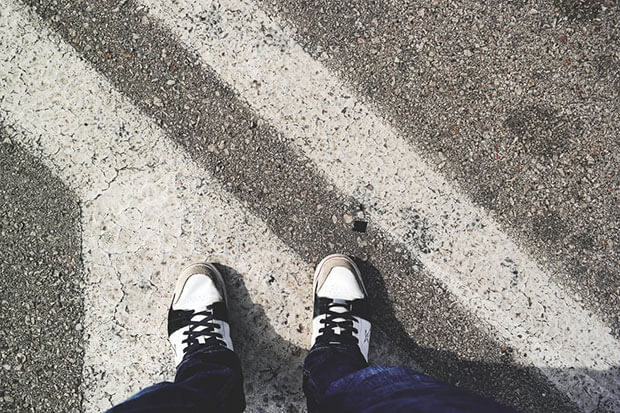- HOME
- TREATMENT OPTIONS
- SERVICES
-
ADDICTION TREATMENT
- ALCOHOL ADDICTION TREATMENT
- DRUG ADDICTION TREATMENT
- METH ADDICTION TREATMENT
- HEROIN ADDICTION TREATMENT
- PRESCRIPTION DRUGS TREATMENT
- CRACK COCAINE TREATMENT
- COCAINE ADDICTION TREATMENT
- MARIJUANA ADDICTION TREATMENT
- GHB TREATMENT
- ECSTASY TREATMENT
- OPIATE ADDICTION TREATMENT
- OPIOID ADDICTION TREATMENT
- PROGRAMS
- DETOX
- INFO
- RESOURCES
- SUCCESS
Rehab Search
Where
Select a state
Type of Care
Primary Focus of Provider
Services Provided
Type of Care
Special Programs and Groups
Forms of Payment
How Receiving Crack Cocaine Treatment Can Improve Mental and Physical Health
The Benefits of Seeking Crack Cocaine Help
Table of Contents
Page Summary
Over 1 million people suffer from crack cocaine addiction, and unfortunately, only a small percentage seek crack treatment. Because of social stigma, most addicts are afraid to get in trouble with the law or embarrass their families and refuse to seek crack cocaine treatment. If crack addiction is left untreated, it can lead to many negative effects on every aspect of life and can even begin to take over life. It is important to know how receiving crack cocaine treatment can improve mental and physical health, as well as help addicts regain control of their lives.
When to Seek Crack Cocaine Help
Most people show physical signs of crack addiction; however, there are behavioral symptoms that many people are unaware of that show when it is important to seek crack cocaine help. It is important to know both the physical and behavioral signs of crack addiction in order to determine how severe the addiction is and when to seek crack cocaine help.
The short-term crack cocaine effects include excessive alertness, irritation, agitation and discomfort; these symptoms happen right when an addict uses; however, some of them can last a lifetime. The long-term crack cocaine effects include irritability, aggressive and impulsive behaviors, an increased risk of depression, suicide or homicidal thoughts and many negative health effects, such as:

- Increased risk of cardiovascular disease
- Heart attack
- Stroke
- Risk of aortic dissection or tears in the body’s major artery
- Brain seizures
- Respiratory failure
- Sexual dysfunction
- Tremors
- Mild convulsions
- Increased blood pressure and heart rate
- Fever
- Constricted blood vessels
- Itchy skin
- Runny nose
- Teeth grinding
- Constant sore throat
- Chest pains and asthma
- Lethargy
- Excessive hunger
- Insomnia
- Hypersomnia
The behavioral symptoms of crack cocaine include:
- Uncontrollable compulsion to regularly use the substance
- Lack the ability to cease using the substance
- Ensuring constant availability of the substance
- Finding any means necessary to obtain drugs, even if it’s illegal
- Falsely believes there are benefits of regularly using the drug
- Lack of motivation
- Frequently getting in trouble
If addicts show any of the above symptoms, it is extremely important to seek crack treatment in order to regain control of their lives and live free from the dependence of crack cocaine addiction. Crack treatment will not only help patients regain control of their lives, but it will help them boost their self-esteem and increase longevity.
Withdrawal from Crack: What to Expect
The withdrawal from crack process will begin once an addict undergoes a crack cocaine detox program. The crack cocaine detox program is crafted around each patient’s unique and specific needs, which are determined by an extensive mental and physical assessment. The assessments determine what type of crack cocaine detox patients will undergo, as well as which therapeutic modalities they will participate in.
Depending on the severity of the crack cocaine addiction, the detox process will last anywhere from a week to a month.
Crack Cocaine Withdrawal Side Effects and Symptoms
Once an addict being the detox process, they will experience crack cocaine withdrawal symptoms, which are uncomfortable and sometimes unbearable. The crack withdrawal side effects include irritability, anxiety, headaches, nausea, changes in appetite, flu-like symptoms, muscle aches, seizures, heart attacks, strokes, tremors, hallucinations, depression and suicidal thoughts. These crack withdrawal symptoms will last for at least 72 hours. Addicts do not begin to feel normal until, at least, week four.
Crack Cocaine Withdrawal Stages
During the first two weeks of crack cocaine withdrawal, patients will experience hostility and impulsive behaviors; they may also feel moody, irritated and anxious. The positive withdrawal symptom during week two is an increased appetite. Crack cocaine can cause negative effects on physical health because it decreases appetite; however, during week two of the withdrawal from crack cocaine, patients will finally feel the desire to eat again.
Patients will also experience a sort of euphoric feeling during the crack cocaine withdrawal stages, specifically at week four. During this stage of crack cocaine withdrawal, they feel energetic and full of optimism which often causes them to think they can use again and have control over their addiction; however, this is the crack cocaine withdrawal stage that causes most addicts to relapse.
The crack cocaine detox is just the first step in the treatment of crack cocaine addiction; it takes a series of therapeutic modalities to really help addicts subdue their addictive behaviors in order to learn how to live their lives free from the dependence of stimuli.
How to Get Off Crack with Therapeutic Modalities During Crack Cocaine Rehab
Following an extensive crack cocaine detox and after enduring through the withdrawal symptoms of crack, patients will begin a series of therapeutic modalities in order to properly get off crack during crack cocaine rehab. How to get off crack is essentially the same for each patient; once they complete their detox process, they participate in traditional and experiential therapies that retrain their brains in order for them to control their behaviors and cope with the stresses of life without the need of crack cocaine.
The therapeutic modalities offered at crack cocaine rehab teach patients how to recognize their negative behaviors in order to replace them with positive coping mechanisms. Every therapy is evidence-based and scientifically proven to boost self-esteem and increase longevity. Patients learn to control their behaviors and react positively to many different types of situations.

One of the best therapies offered at crack cocaine rehab centers is the cognitive behavioral therapy, which helps patients pinpoint triggers that are contributing to their negative and addictive behaviors. Once they are able to recognize their triggers, they learn the tools necessary to replace those triggers with positive coping mechanisms. Another traditional therapy that is wildly successful is the family based therapy. Most people do not realize that they may have contributed to their loved one’s addictive personality. The family therapy allows medical professionals to teach everyone involved in the crack cocaine treatment that addiction is powerful and can be caused by family history and immediate environment. Families are taught how to spot the signs of addiction, as well as how to support their loved one through the difficult journey to recovery. Having a large support group will significantly increase the chances of maintaining sobriety outside of the crack treatment center.
Crack cocaine treatment can also benefit from the use of experiential therapies, such as yoga and meditation, When patients learn to focus, concentrate, breathe and think positively, their minds can be completely altered. Altering the mind allows them to create their own reactions and behaviors; they no longer have the effects of crack cocaine to determine the outcomes of certain situations. They will learn to rely solely on their mind and body to positively deal with the stresses of life. Another experiential therapy that is extremely beneficial for crack cocaine help is the rare, but effective, equine therapy. Equine therapy allows crack cocaine addicts to learn how to take care of something other than themselves. They learn to clean pens, groom horses and also build a bond during the equine therapy; each of these aspects help boost self-esteem which is a great step toward a successful recovery.
Crack cocaine rehab centers provide the tools necessary for addicts to endure through the crack cocaine withdrawal symptoms, as well as the therapeutic modalities offered during the crack cocaine treatment program. Patients learn to take care of themselves, as well as how to live a healthy and sober life.

